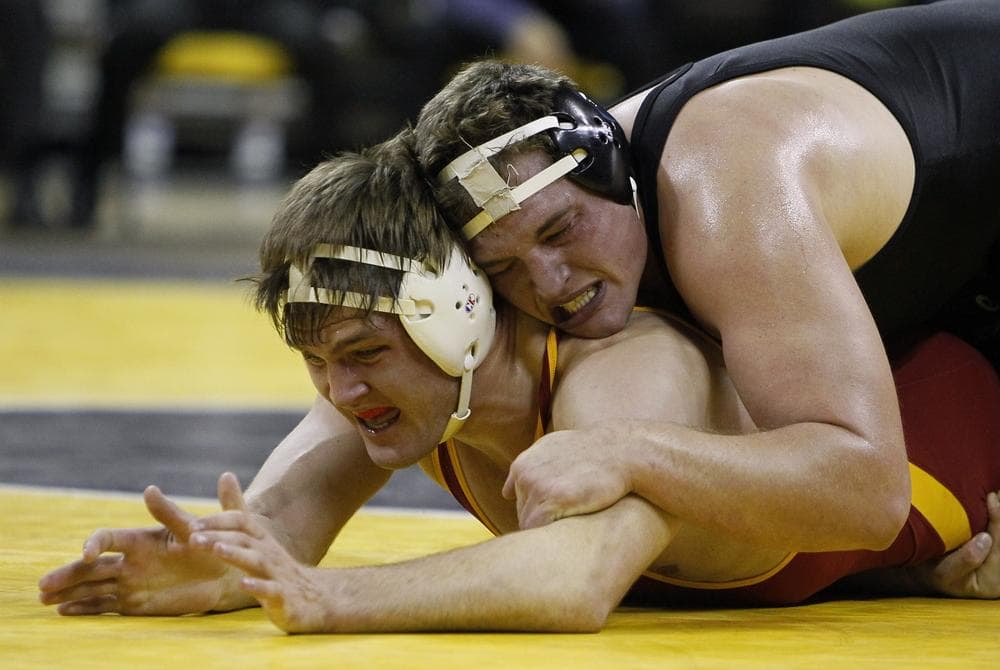Advertisement
Interview
Title IX's Impact On Men's Sports
Resume
The fact that Title IX has increased opportunities for women in sports is undeniable, but has the law resulted in fewer opportunities for men? Bobby Randall was the men's baseball coach at Iowa State from 1985 to 1995. When the institution dropped baseball and men's swimming and diving in 2002, Randall said it was entirely a Title IX issue.
"Why, of course, because women's sports were never considered," Randall said. "You know, the softball coach when I was there, and the women's swimming coach, they were thinking that they were in jeopardy and I knew they weren't in jeopardy. They were never gonna drop a women's sport and really they can't drop a women's sport."
Randall, like many of those who have spoken out against the way Title IX has been enforced, said he's not against opportunities for women and girls. But, he's concerned about some of the ways colleges and universities work the Title IX equation.
"They eliminated sports that the high schools were playing throughout the state — baseball, tennis, they had some swimming programs," Randall said. "And then they add women's rowing which no high school has, any women's rowing teams or any women's equestrian teams. Ad they do that only for the equation, not for the experience."
A lot of these battles that seem to be about Title IX are actually not about men versus women. They're about revenue sports versus non-revenue sports.
Peter Keating, ESPN The Magazine
But, ESPN The Magazine senior writer Peter Keating told Bill Littlefield on this week's Only A Game that the number of scholarships awarded in any particular sport isn't controlled by each school, it's based on NCAA rules. "A lot of these battles that seem to be about Title IX are actually not about men versus women. They're about revenue sports versus non-revenue sports."
Eric Pearson, chairman of the American Sports Council, which bills itself as "the leading group working for the reform of Title IX," disagrees.
"The main issue that we're concerned with is the way it's enforced," Pearson said. "Basically, the way proportionality works is the total number of athletes, the gender ratio of the athletes in your athletic department must mirror the gender ratio of your undergraduate student population."
Female students currently make up about 57 percent of undergraduates at U.S. colleges and universities, but are only 43 percent of the schools' student athletes. "What schools have to do," Pearson continued, "is find ways to meet that ratio. And either they can elevate their numbers of the women's side, or cut down the numbers on the men's side. So that is what we feel is unproductive for both male and female athletes."
Bill asked Pearson, "Schools would never set aside more seats in a classroom for men than for women, so why shouldn’t there be proportional representation in athletics?"
"Athletics are driven largely by interest," Pearson responded, "and interest can differ from sport to sport, from gender to gender."
If given the opportunity to reform Title IX, Pearson said he wouldn't alter the actual legislation. "The language of the law would not be changed," Pearson said. "We don't believe anyone should be discriminated [against] on the basis of their gender. What we have to change is how the law's regulated. Basically, you have to throw out the three-part test and develop a more effective set of criteria. Are you providing equal access to facilities? Are you providing equivalent funding? Are you providing the coaches? And from that, you have a very clear way to evaluate the quality of a program."
"Sometimes even the colleges that are trying to do the right thing have a hard task," Keating said. "You'd still be ignoring the devouring of college athletic resources that is taking place by football, which is a sport that women don't play. As long as 85 scholarships are being given out to the top football programs, you're going to have an enormous time demonstrating any kind of fundamental fairness in your athletic program."
"I think it's time for men's non-football and non-basketball coaches to assert themselves and demand a fairer allocation of resources inside the world of men's sports," Keating added. "Once people realize what a breaking point a lot of these Olympic sports are at, that might be a way forward."
This segment aired on June 23, 2012.